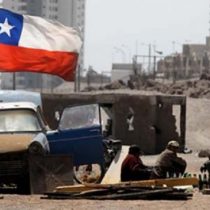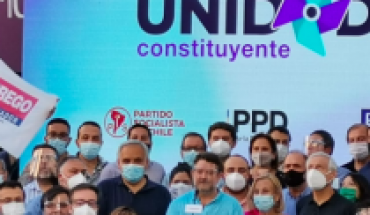
Despite the advancement and strengthening of feminism in our country, which has managed to materialize the passage of the law against street harassment or the law of abortion in three causes, today I still be a teenager and a girl in Chile and s extremely complex, and even more so being a poor and violated girl.
Since the Children’s Report Counts in Chile 2015, it is established that, while multidimensional poverty affects similarly children on average at the national level, in some regions, such as the Araucanía Region and the Atacama Region, the situation is more serious for girls, reaching mutadimensional poverty levels of 31.4% and 28.7%, respectively.
The situation of girls is also critical when, in addition to being poor, they face violations of their rights, which can even be criminal, such as sexual abuse. According to data from the Sename Statistical Yearbook, in 2018 there were 1,225 cases of girls in the Outpatient Sexual Exploitation Rehabilitation Programme (EEP), considering 397 new income in 2018.
According to the Monitoring Report of the Observatory of Children and Adolescents, and figures from the Undersecretariat for Crime Prevention 2016, it is established that for every 100 thousand inhabitants 247.5 complaints of sexual violence offences against girls and adolescents were recorded between the ages of 14 and 17, and that of the total victims of sexual violence crimes in minors, 81% are female girls or adolescents.
This Friday, March 6, we will go out on the street again with the slogan “No more Sename”, two years after Sophie’s horrific murder at the hands of her father’s abuses, and the murder of Amber, abused by an uncle after the Sename did not want to give her care to o uncle chosen by the mother, for the fact that he is homosexual.
We continue to protest because, although in May 2018 the Government launched, with extensive press coverage, the National Agreement for Children, there are little progress in protecting children. On the other hand, the Child Rights Guarantees Bill is still in the Senate and does not welcome the recommendations of the Committee on the Rights of the Child, such as the de-judicialization of protection, the strengthening of administrative measures and , consequently, the role of the local child protection system. Nearly two years after the Agreement, there is still no clarity on how the local supply of the Child Protection System will be articulated.
How many more years must it take for the Government to take concrete action? How many children the Government expects to be violated in their sexually abused, sexually abused rights, so that the protection of the country’s most vulnerable children is finally given urgency? As long as that doesn’t happen, we’ll keep going.
The content poured into this opinion column is the sole responsibility of its author, and does not necessarily reflect the editorial line or position of El Mostrador.





